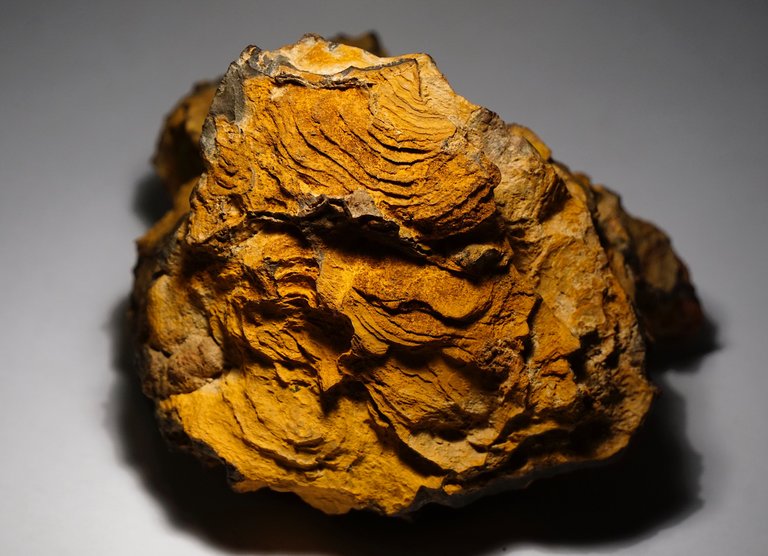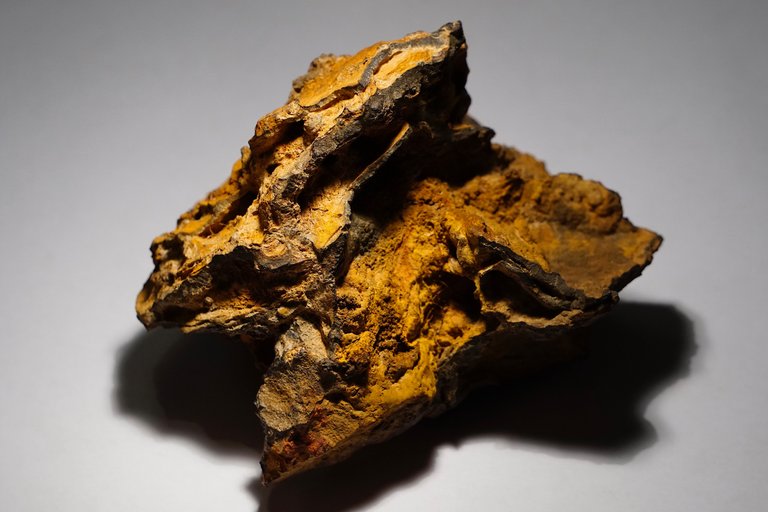Hello everyone, I hope you had a week which was full of interesting experiences and I also wish you a great start into the new week! In this article I would like to share something about an exciting topic and hope you are able to expand your knowledge.
To be seen here is a specimen of the mineral Goethite which was named after the well-known poet Johann Wolfgang von Goethe (1749 - 1832) and this iron-containing mineral has oxidised over time and has turned into Limonite which is usually found in oxidation zones of ore-containing mines. Goethe was a great mineral collector during his life and he had a considerable collection which included almost 20000 different specimens and the mineral named after him consists of over 50% iron and is only one of the many minerals that oxidise over time. Oxidation is basically a chemical reaction in which oxygen reacts to certain metals, which means that a substance changes and this term was shaped by the French chemist Antoine Lavoisier (1743 - 1794) who had dealt more with this phenomenon during his research. Explained more precisely, oxidation leads to the release of electrons and there are various examples of it and the best known will probably be rust which can be seen in many places and also by burning materials with carbon dioxide there is an oxidation. Over the centuries, the term has changed and in the past, it was understood mainly as the reaction caused by the influence of oxygen, but certain substances can also lead to this chemical reaction and the reversal of it is also called Reduction and this is understood as an absorption of electrons, not a decrease.
Thanks for stopping by and I hope you could learn something new about this topic! I captured these pictures with my Camera Sony Alpha 6000 plus 55-210 mm lens.


#hive #posh